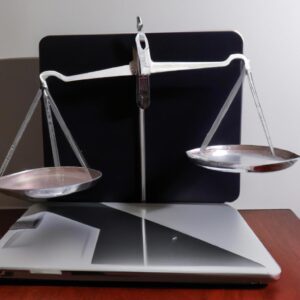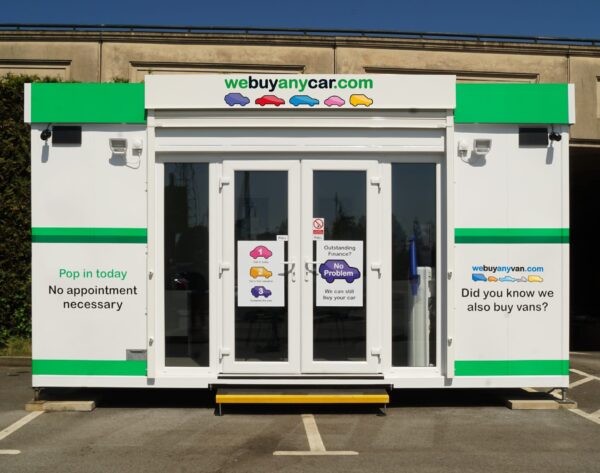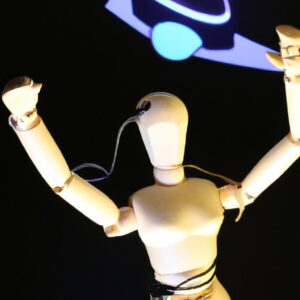Unravel the Puzzle: Laptop vs. Tablet – What’s Best for Productivity?

Considering Laptop or Tablet for Productivity?
If you’re looking for a powerful tool to help boost your productivity, it’s worth taking a moment to consider the difference between a laptop and a tablet. Both can be used to get things done, but which one is better for your specific needs? Let’s take a look at the advantages of each to help you find the device that’s right for you.
Laptop Advantages
These days, laptops have become an incredibly popular choice for anyone looking for a reliable device for productivity purposes. There are several reasons why laptops remain so widely used and preferred over tablets or other electronic devices. The main advantages of a laptop include:
- Size: Laptops are compact and light, making them very portable. This makes them convenient to carry wherever you go!
- Price: Generally, laptops are less expensive than tablets. This makes them ideal for those who need a device for productivity purposes but don’t want to break the bank.
- Hardware Options: There are many hardware options available with laptops, such as additional RAM and internal storage. This makes laptops highly customizable and allows users to tailor their laptop to their individual needs.
- Additional Features: Laptops often come with additional features such as a full-sized keyboard, mouse, or a touchscreen. This gives users more flexibility when using their laptop.
These features make laptops a great option for anyone who needs a device for productivity. With its portability, affordability, and options for customization, a laptop is sure to meet your needs when it comes to productivity.
Tablet Advantages
Tablets are an increasingly popular choice for those seeking a device that offers more than a laptop but is still great for productivity. Tablets offer several advantages that make them better for some individual needs than laptops.
Touchscreen technology provides users an intuitive way to interact with their device, while user-friendly apps give users access to productivity tools and other useful features without having to learn a complicated program. Tablets are also extremely mobile and lightweight, making it easy to move around with them and work wherever is most comfortable.
Tablets offer benefits such as improved battery life when compared to laptops, and many models can be charged using the same USB cables used for smartphones, making it easy to keep a tablet charged up on the go. Some tablets come with added features such as stylus and voice recognition, allowing users to get more out of their device.
Tablets may not have as much storage capacity or as many ports as laptops, but for those looking for a device that will serve them well for everyday tasks such as answering emails, making notes, and staying organized, tablets offer a great option.
Using a Laptop and Tablet Together for Productivity
Using both a laptop and a tablet together is an increasingly popular choice for those looking to boost productivity. By having both devices at your disposal, you can get the best of both worlds – the power of a laptop, and the convenience of a tablet. Here’s how:
- Portability: You can use the laptop at home or in the office, then quickly switch over to the tablet when you’re on the go – and vice versa.
- Multi-tasking: A tablet can be used to handle less intensive tasks such as browsing the internet, checking emails, or streaming media, while a laptop can handle heavier tasks such as video editing, playing games, or creating complex documents.
- Convenience: For tasks that don’t require an external keyboard, such as checking emails or watching videos, the touch-screen interface of a tablet can be much more convenient than a laptop.
On the other hand, using two devices can also come with some drawbacks. Syncing the two devices can be time-consuming, and finding the right applications to sync them can be difficult. Additionally, if the battery in your laptop or tablet runs down while you’re out and about, it’s not too convenient to have to carry around two separate chargers.
Overall, using a laptop and tablet together for productivity can be a great solution – if you make sure that both devices are compatible, and that the applications you need are available on both platforms. With the right setup, you’ll have all the power and convenience you need for a productive day.
Conclusion: Laptops vs. Tablets for Productivity
When it comes to productivity, laptops and tablets both provide great opportunities. One the one hand, laptops offer larger screens, more ports, and more power than a tablet. They also tend to be more affordable and have a variety of hardware options. On the other hand, tablets are smaller, more compact, and come with touchscreens, making them easier to use. They also usually offer more user-friendly apps.
To determine which device is better for productivity, it depends on the specific needs of the user. For those who need a device with a larger screen or more ports, a laptop may be the better choice. However, for those who require portability and easier access to apps, a tablet may be the better option. Additionally, both laptops and tablets can be used together for maximum productivity.
In conclusion, there is no clear ‘winner’ in the laptop versus tablet debate for productivity purposes. Instead, consumers should consider their individual preferences for size, power, cost, and more when selecting the right device. It is also important to keep in mind how various software programs and operating systems work with the chosen device. Shopping carefully and keeping security in mind are also essential to achieving an optimal productivity device.
Compatibility Considerations
When it comes to productivity, one of the biggest considerations is compatibility. To ensure that you are getting the most out of your laptop or tablet, it’s important to understand how the various software programs and operating systems work with each device.
Most laptops use full-sized OS like Windows or Mac OS X, while tablets typically use mobile operating systems such as iOS or Android. Generally speaking, laptops are capable running more powerful programs compared to tablets, while tablets may be better suited for simpler tasks such as web browsing and streaming media.
Another important consideration when it comes to compatibility is the availability of hardware components. Laptops typically include a wide variety of hardware options, including graphics cards, hard drives, processors, and so on. Tablets, on the other hand, generally have fewer options, but may include other features such as rear-facing cameras or a larger battery capacity.
Finally, when it comes to compatibility, it’s important to make sure that the software you are using is compatible with the device you are using it on. For example, if you need to run an office program such as Microsoft Office, make sure that the version you are using is compatible with your device.
Important Features to Look For When Shopping for a Laptop and Tablet
When shopping for a laptop or tablet, there are some important features worth considering. Consumers need to look at performance, battery life, storage capacity, ports, and more before deciding which device is best for their productivity needs.
Performance is one of the most important aspects to consider when looking into both laptops and tablets. Both have similar CPUs, though laptops generally offer powerful processing capabilities. Additionally, laptops have the advantage of having dedicated graphics cards, which tablets do not feature.
Battery life is another factor to consider when shopping for either device. Laptops usually have longer battery life due to bigger and more efficient batteries. Tablets can last for hours when charged fully but will need to be recharged more often than laptops.
Storage capacity is an important factor for those who will be working with large files and need lots of space for data, such as video editing. Tablets are limited to 32GB or 64GB while laptops have much larger hard drives (HDDs) that can go up to 500GB or even 1TB.
Ports, one of the main advantages of laptops, are also worth considering. Most laptops provide a variety of ports, including USB, Thunderbolt, HDMI, and more, whereas tablets typically only feature one or two ports at most.
Other features to consider may include: weight, display size, sound quality, and more. The bottom line is to do research on both laptops and tablets before deciding which one to purchase.
Pros and Cons of Upgrading a Laptop or Tablet
Do you find yourself struggling to keep up with the latest technology? If so, an upgrade might be your best option. Upgrading your laptop or tablet could improve your productivity, performance, and battery life, allowing you to work more efficiently. Consider the following pros and cons when deciding whether to upgrade your laptop or tablet.
Pros:
- Better Performance – Newer versions of laptops and tablets offer faster processors, as well as increased RAM. This results in improved speed and better multitasking capabilities.
- Longer Battery Life – With the latest technology comes longer battery life. This is great for those who frequently use their devices for work while traveling.
- New Features – Technology advances rapidly, and new versions of laptops and tablets include features that were not available in older models.
Cons:
- Higher Cost – The newest laptops and tablets typically come with a higher price tag than older versions. This might be a consideration for those with a limited budget.
- Obsolete Components – As technology advances, components become obsolete quickly. This can make it difficult to find replacement parts if something breaks.
- Time and Energy – Whenever you upgrade a device, there is a learning curve. You will need to invest time and energy in understanding the new features and getting used to them.
When considering whether to upgrade or replace your laptop or tablet, think carefully about the pros and cons. You may find that an upgrade is the perfect solution for improving your productivity and efficiency. However, if you’re on a tight budget, you might opt for a different choice.
Data Security for Laptops and Tablets
When using a laptop or tablet for productivity purposes, it is essential to ensure that your data remains secure. Digital security is important for anyone with sensitive information, and there are several measures you can take to protect yourself. Here are some tips to consider when safeguarding your data on computers:
- Install anti-virus and anti-malware programs on your device to detect any malicious threats.
- Back up your files regularly to an external hard drive or cloud storage system.
- Change your passwords frequently and use unique combinations of letters, numbers, and symbols.
- Disable Wi-Fi and Bluetooth when not in use.
- Set up two-factor authentication for any online accounts.
- Avoid taking sensitive data out of work or other private premises.
- Do not store excessive amounts of data on your device.
- Be wary of clicking on links or downloading content from suspicious sources.
- Consider investing in a Virtual Private Network (VPN) to encrypt your online activity.
By taking the necessary precautions and adopting good cyber security practices, you can keep your data safe when using laptops and tablets for productivity.
Cloud Storage vs. Local Storage
When considering laptops and tablets for productivity purposes, it’s important to understand the advantages and disadvantages of cloud storage versus local storage.
Cloud storage offers the advantage of convenience and accessibility. It allows users to securely store files online and access them from any computer or device with an internet connection. Data stored in the cloud is automatically backed up and easy to share and transfer. However, cloud storage can be relatively expensive unless you take advantage of free storage options like Google Drive.
Local storage, on the other hand, is often less expensive than cloud storage. It is also typically faster depending on the size of the files being stored and transferred. All data is stored on a local hard drive, making it more secure as long as certain security protocols are followed. However, if the device storing the data is lost or damaged, all the stored files will also be lost.
When it comes to laptops and tablets, it’s important to consider your storage needs. If you plan to store a lot of data, you might prefer a laptop with larger local storage capacity. If you need to store and access files quickly and remotely, cloud storage may be the better option.
Examining Performance, Battery Life and Other Aspects
When considering the benefits of laptops versus tablets for productivity, one of the most important aspects to consider is performance. Both laptops and tablets need to have enough processing power to handle the tasks you throw their way. Depending on what you’re using it for, your device needs to be able to keep up with your work and not be so slow that it causes unneeded delays in your workflow. This is why it’s important to take into account the hardware specifications of any laptop or tablet you’re considering.
Another key consideration is battery life. Having a laptop or tablet with long battery life can make a big difference in how you use either device. If you’re working while travelling, having a device that can last a full day of work without having to constantly recharge it can be a huge advantage. Many laptops and tablets now come with extended battery life options, so it’s worth researching these further to find the one that is most suitable for your productivity needs.
You should also consider other features such as display size and resolution, storage space, RAM, built-in cameras, and ports. All of these features may contribute to your overall productivity with the device. For example, if you are working with lots of graphics or video editing, then a larger display and higher resolution would be beneficial. Similarly, if you are storing lots of files, then more storage space would be ideal. The available ports might also be important if you are connecting external peripherals such as a mouse or an external hard drive.
Commonly Asked Questions About Laptops vs. Tablets for Productivity
When it comes to productivity, many customers are trying to decide whether to go with a laptop or a tablet. There are pros and cons of each, so it is important to research both to make sure you get the best option for your needs. Here are some commonly asked questions about laptops versus tablets for productivity purposes.
Will a laptop or tablet be more suitable for video editing?
If you are going to be doing a lot of video editing, then a laptop is usually the better option. Laptops tend to have more powerful processors and larger hard drives than tablets, making them better suited for editing large video files. That said, some tablets do have powerful processors and plenty of storage, so it is worth doing some research on the particular tablet model before making a decision.
Which is more portable?
Tablets are generally much more portable than laptops. This makes them ideal if you need to take your device from one place to another without much fuss. They tend to weigh less than laptops and can easily fit into a bag or even a pocket. On the other hand, laptops may be more convenient if you are regularly using your device in multiple locations, as they come with built-in keyboards and a larger screen.
Will a laptop or tablet be better for multitasking?
Laptops usually come with more RAM and a larger screen, which can make them better for multitasking. With a laptop, you can open multiple programs and windows at the same time and switch between them quickly and easily. Tablets, on the other hand, may not be able to handle multiple programs or windows open at once without slowing down or crashing. However, some tablets have powerful processors that can handle multitasking tasks like video editing or gaming.
Which has better battery life?
The battery life of a laptop or tablet will depend on a variety of factors, including the size of the device, the processor, and how often the device is used. Generally speaking, tablets tend to have longer battery lives due to their smaller size and lower power consumption. Laptops, on the other hand, may be able to provide more time on a single charge but may need to be plugged in more often than tablets.
comments: 0





